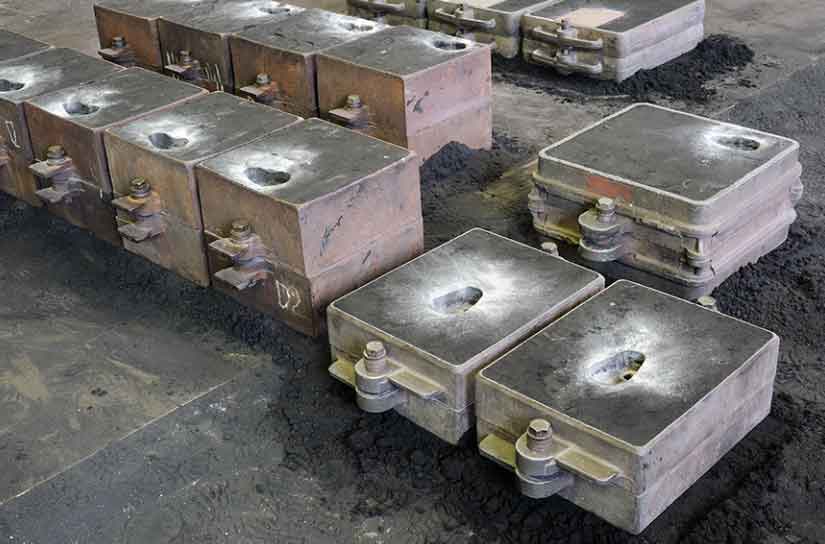
Resin sand casting offers several advantages that make it an efficient and precise metal casting process. These advantages have made it a popular choice for various industries seeking high-quality, complex, and cost-effective metal components. Here are some key advantages of the resin sand casting process:
- Dimensional Accuracy: Resin sand casting allows for the production of castings with excellent dimensional accuracy and tight tolerances. The use of high-quality resin-bonded sand and advanced molding techniques ensures that the final castings closely match the intended design specifications.
- Complex Geometry: The process enables the production of intricate and complex geometries, including internal cavities and undercuts, which are challenging to achieve with other casting methods. This makes resin sand casting suitable for creating components with complex shapes and fine details.
- Smooth Surface Finish: Resin sand casting results in castings with smooth surface finishes, reducing the need for extensive post-processing and finishing operations. This contributes to overall efficiency and shortens the lead time from casting to the finished product.
- Lower Tooling Costs: Compared to other casting methods, the tooling costs for resin sand casting are relatively lower. This makes it a cost-effective option, especially for small to medium-scale production runs, prototypes, and one-off castings.
- Improved Mold Strength: The use of resin-bonded sand in the molding process enhances the mold’s strength and rigidity, leading to improved mold stability during pouring and reduced mold-related defects.
- Higher Production Rates: Resin sand casting can achieve higher production rates compared to other traditional sand casting methods. The improved mold filling and solidification characteristics contribute to increased casting production rates.
- Flexibility in Material Selection: Resin sand casting can accommodate a wide range of materials, including ferrous and non-ferrous metals, as well as various alloys. This flexibility allows manufacturers to choose materials that best suit the specific requirements of their applications.
- Environmentally Friendly: Resin sand casting is a more environmentally friendly option compared to some other casting processes. The sand used in the molds can be recycled, reducing waste, and the use of water-based resins further contributes to sustainability.
- Suitable for Large and Heavy Castings: Resin sand casting is well-suited for producing large and heavy castings due to its ability to handle significant mold sizes and support the weight of the molten metal.
- Automation and Process Control: Resin sand casting can be easily integrated with automated systems, allowing for consistent and repeatable production. Automated pouring, mold handling, and cooling processes enhance efficiency and reduce labor requirements.
Overall, the efficiency and precision of resin sand casting make it an attractive choice for manufacturers looking to produce complex metal components with high accuracy and cost-effectiveness. It is widely used across various industries, including automotive, aerospace, energy, machinery, and more.
